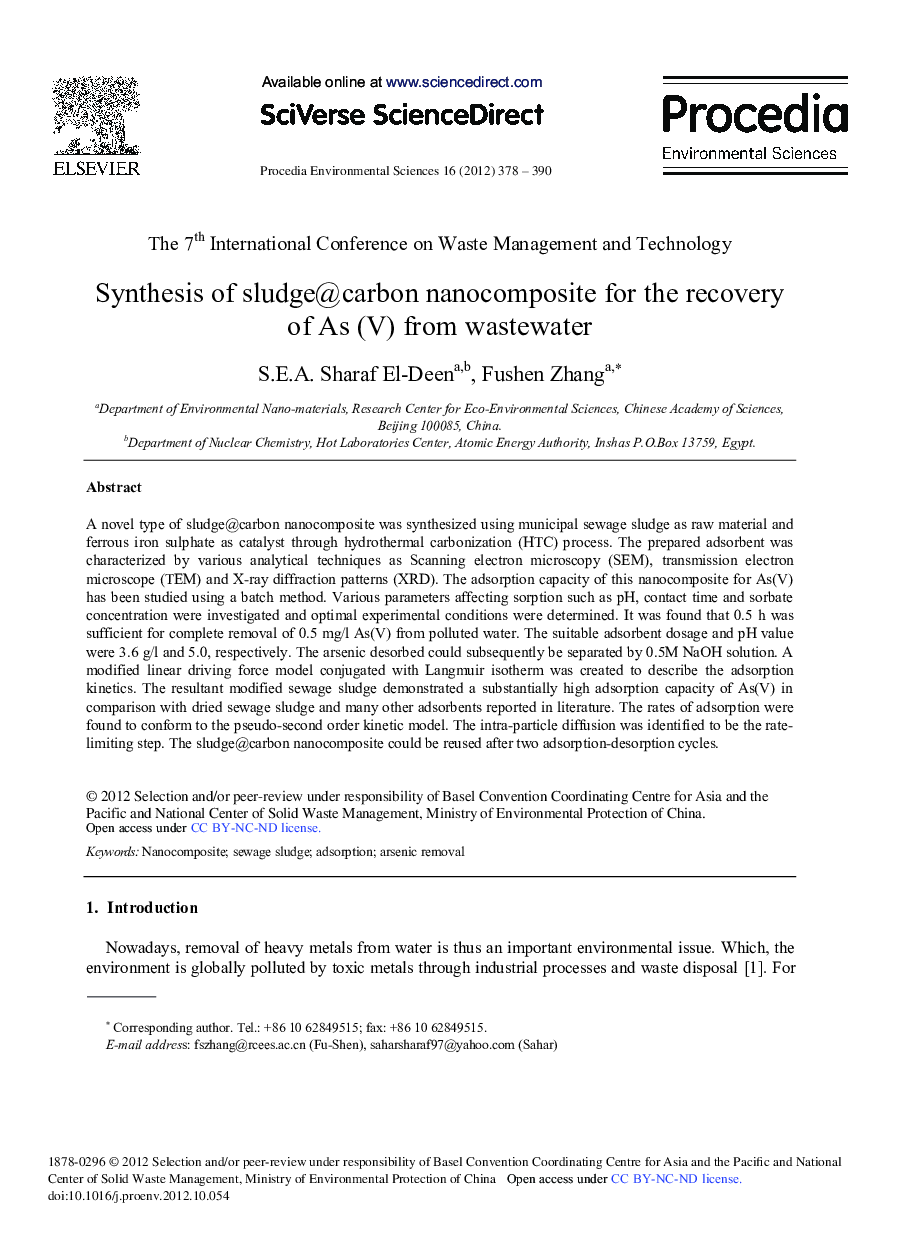| کد مقاله | کد نشریه | سال انتشار | مقاله انگلیسی | نسخه تمام متن |
|---|---|---|---|---|
| 4402682 | 1618628 | 2012 | 13 صفحه PDF | دانلود رایگان |

A novel type of sludge@carbon nanocomposite was synthesized using municipal sewage sludge as raw material and ferrous iron sulphate as catalyst through hydrothermal carbonization (HTC) process. The prepared adsorbent was characterized by various analytical techniques as Scanning electron microscopy (SEM), transmission electron microscope (TEM) and X-ray diffraction patterns (XRD). The adsorption capacity of this nanocomposite for As(V) has been studied using a batch method. Various parameters affecting sorption such as pH, contact time and sorbate concentration were investigated and optimal experimental conditions were determined. It was found that 0.5 h was suffici ent for complete removal of 0.5 mg/l As(V) from pollut ed water. The suitable adsorbent dosage and pH value were 3.6 g/l and 5.0, respectively. The arsenic desorbed could subsequently be separated by 0.5 M NaOH solution. A modified linear driving force model conjugated with Langmuir isotherm was created to describe the adsorption kinetics. The resultant modified sewage sludge demonstrated a substantially high adsorption capacity of As(V) in comparison with dried sewage sludge and many other adsorbents reported in literatur e. The rates of adsorption were found to conform to the pseudo-second order kinetic model. The intra-particle diffusion was identified to be the rate-limiting step. The sludge@carbon nanocomposite could be reused after two adsorption-d esorption cycles.
Journal: Procedia Environmental Sciences - Volume 16, 2012, Pages 378-390